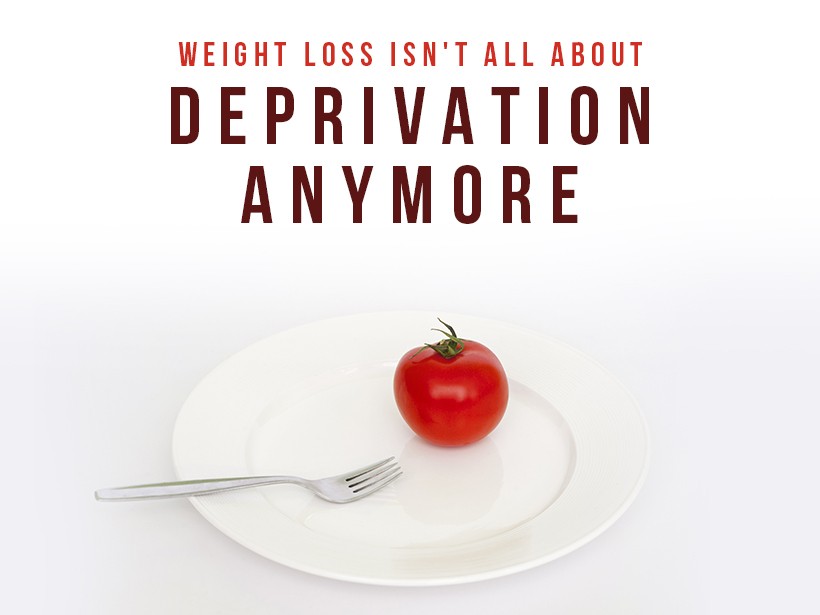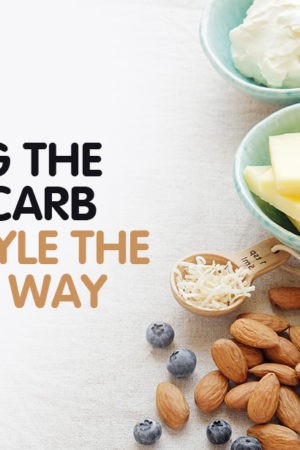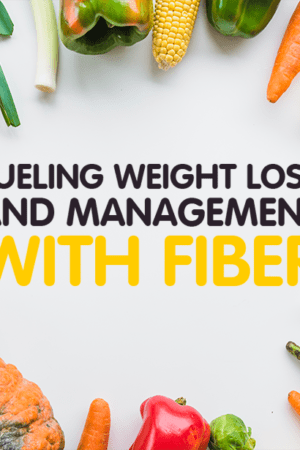We’ve all heard it at one point or another; to lose weight, you need to eat less. However, a new study from Penn State1 suggests that deprivation might not actually be the key to successful weight loss. Instead, it’s about making smart choices regarding what you eat, rather than how much.
Studying the Effects of Choice
The unique study consisted of 34 overweight, 29 normal weight, and 39 individuals who completed a one-year weight loss trial emphasizing the importance of portion control. Throughout the process, researchers at Penn State gave participants meals that varied in portion size and measured how much the individuals ate. Unsurprisingly, they found that, despite one-third of the participants being trained in different portion-control strategies, participants inevitably ate more when they were given larger portion sizes. In fact, a 75 percent increase in portion size led to participants eating, on average, 27 percent more calories.
The difference, however, was in the choices these participants made. Subjects who were trained in portion control strategies ate the same amount as others, but they chose healthier foods. And, since they erred on the healthier side of the plate, they ended up consistently consuming fewer calories than their counterparts.
Portion Size Plays a Bigger Role Than You May Think
Faris Zuraikat, a graduate student involved in the execution of the study says, “The results show that choosing healthy, lower-calorie-dense foods was more effective and more sustainable than just trying to resist the large portions of higher calorie options.” He also stated that they drew an interesting conclusion. If the test subjects went for the higher caloric foods but tried to restrict their consumption, the portions were small, and they were liable to become hungry again.
Ultimately, Zuraikat says, “The study supports the idea that eating less of the higher-calorie-dense foods and more of the nutritious, lower-calorie dense foods can help to manage hunger while consuming calories.” As such, the study clearly demonstrated that individuals can still enjoy a full plate of food, simply by changing the proportions and types of foods provided.
Weight Loss Doesn't Have to Lead to Hunger
So, what does this mean for you? The study, which was published in the journal Appetite2 offers a way for you to have your proverbial cake and eat it, too. Instead of opting for the rich, calorie-dense foods or heavy carbs, load your plate with greens, carb-free, and low-carb options. Choose foods that will fill you up without overfilling your calorie coffers. By doing so, you ensure that you can eat more, feel full, and still consume fewer calories overall.
NUTRITIONAL DISCLAIMER
The content on this website should not be taken as medical advice and you should ALWAYS consult with your doctor before starting any diet or exercise program. We provide nutritional data for our recipes as a courtesy to our readers. We use Total Keto Diet app software to calculate the nutrition and we remove fiber and sugar alcohols, like erythritol, from the total carbohydrate count to get to the net carb count, as they do not affect your blood glucose levels. You should independently calculate nutritional information on your own and not rely on our data. The website or content herein is not intended to cure, prevent, diagnose or treat any disease. This website shall not be liable for adverse reactions or any other outcome resulting from the use of recipes or recommendations on the Website or actions you take as a result. Any action you take is strictly at your own risk.
- Jacob’s Meat Market Joins the Keto Craze - February 12, 2019
- Doing the Low-Carb Lifestyle the Right Way - January 31, 2019
- How to Boost Your Metabolism and Burn Fat Faster - January 3, 2019































